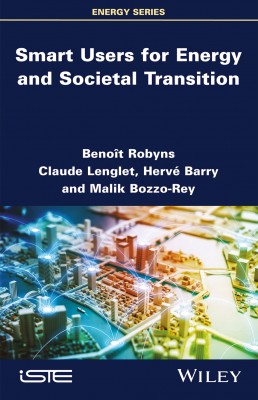
Benoît Robyns, University Catholique of Lille and L2EP, France
Claude Lenglet, Nord-Europe TIR Consulting Group LLC, France
Hervé Barry, University Catholique of Lille, France
Malik Bozzo-Rey, University Catholique of Lille, France
Climate change and the loss of biodiversity are now realities. Their causes and origins stem from the energy, goods and resources relied upon by the lifestyle of a growing part of humanity.
Smart Users for Energy and Societal Transition presents this much-needed transition, as well as the scenarios and paths essential to mitigating the impacts of climate change. It deals with transitions experimented in the form of ecosystems in universities, cities and territories, as well as with concepts of smart buildings, smart grids and smart cities, addressed to smart users – or not – in an interdisciplinary research context. Sociological issues related to the role of smart building users are discussed, ranging from acceptance to the appropriation of the technologies made available to them. The book highlights the ethics of this essential transition and the importance of individual behaviors in safeguarding humanity on a preserved planet.
1. The Necessary Transition of the 21st Century.
2. The Transition: Concept or Reality?
3. University: The Ideal Place for Research and Implementation.
4. Smart Building Nodes in Smart Energy Networks: Components of a Smart City.
5. An Energy-Efficient Smart Building with or without the Cooperation of Its Occupants?
6. Ethics of Energy and Societal Transition.
Benoît Robyns is deputy scientific director at Junia, Graduate School of Engineering, vice-president of energy and societal transition at the Université catholique de Lille and researcher at L2EP, France.
Claude Lenglet is an engineer. He is involved in work on climate-related transitions.
Hervé Barry is a sociologist at the FGES of the Université catholique de Lille, France.
Malik Bozzo-Rey is research director in ethics at the ETHICS laboratory of the Université catholique de Lille, France.